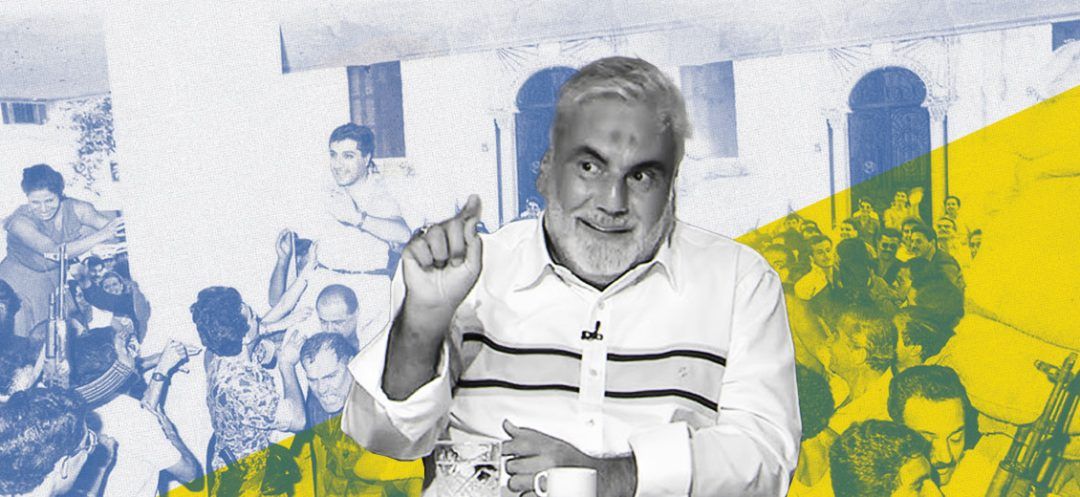
The strategy of gradual encroachment, aimed at progressively undermining, step by step, the various mechanisms of the State and the country's politico-communal framework… This is the unapologetic and ongoing approach adopted by Hezbollah. The Maronite Patriarch, Cardinal Bechara Rai, succinctly captured this reality in his Sunday sermon during a mass commemorating the martyrs of the Lebanese resistance (the Lebanese Forces) in Mayfouk on September 15: "Certain groups (a thinly-veiled reference to the pro-Iranian party) seek to turn Lebanon into a vacant territory to implement their project, in blatant disregard for the State, the Constitution, and the rule of law (…)." He further added, pointedly, "The Lebanese are facing an invasion far worse than occupation."
Viewing the Land of the Cedars as little more than a vast, desolate wasteland, a "private property" and a strategic outpost for the Iranian Islamic Revolutionary Guard Corps has long been the steadfast approach of Hezbollah’s leadership and its affiliated factions for many years.
Former Hezbollah MP Nawaf Moussaoui—who was ousted from his parliamentary seat and sidelined by his party after making sectarian outbursts during a parliamentary session—has reemerged on the local scene, likely at the behest of his superiors, to further escalate the intimidation tactics used by the henchmen of the Iranian regime. Candidly unveiling his party’s (well-known) methods, he openly declared that any president of the Republic who opposes Hezbollah’s policies "will not survive!" To further clarify his stance, Moussaoui referenced the case of Bachir Gemayel (whom he pointedly refrained from naming), even going so far as to suggest that the president-martyr’s assassin, through his murder, had "fulfilled his national duty!"
When a high-ranking party official exhibits such contempt and disregard for the sensibilities of a broad segment of the population—not only Christians, as evidenced by the widespread outrage from politicians and online users across various communities—, it signals a failure to genuinely commit to building a State and reconstructing the country in partnership with all segments of society.
In this context, it is not surprising to see activists, senior officials and intellectuals from various communities—particularly Christians—openly state that "living together" is no longer possible with a faction that adopts such practices and rhetoric as Moussaoui. This faction continually demonstrates that its sole aim is to further the hegemonic and sectarian agenda of the mullahs in Tehran. From this perspective, anything is permissible: assassinations (as Moussaoui himself acknowledges), a strategy of dismantling the State and its vital sectors, as well as political and community structures, unilateral decisions that drag the country into conflicts unrelated to Lebanese interests and that serve only Tehran's objectives, attempts at demographic manipulation, threats, intimidation, militia pressure and highly dubious economic practices, among other actions.
In this context, the prospect of meaningful dialogue and the formulation of a balanced, healthy and sustainable national vision with a party that neglects Lebanese interests appear increasingly improbable. This faction's ideology and political doctrine, established in the mid-1980s, demand unwavering loyalty to the supreme and untouchable leader of a regional power laying claim to divine "legitimacy," detached from popular concerns.
Some Western leaders may be tempted to engage in realpolitik, showing complacency towards Hezbollah’s leadership or the mullahs' regime in Tehran. However, this approach either overlooks or deliberately ignores the fact that it only exacerbates chronic instability and fuels a terrorist threat that could eventually transcend Lebanon and the region to reach major cities in the West. Recently, several European Union countries, notably Germany, have begun to address the rise of political Islam, which is being partly driven by the Iranian Islamic Republic and its radical affiliates.
While denouncing Islamophobia and stereotypes is understandable, turning a blind eye to the surge of jihadist and fundamentalist terrorism is increasingly perilous and could yield devastating consequences for human rights and universal humanist values.
Read more




Comments